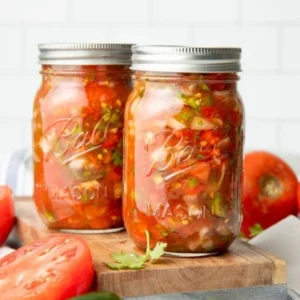Dealing with pesky weeds in your garden or driveway doesn’t always mean turning to harsh chemicals. A natural weed killer recipe offers a safer, eco-conscious alternative using ingredients you likely already have at home. Popular among organic gardeners and environmentally aware homeowners, this solution is not only budget-friendly but also pet- and child-safe.
Its popularity stems from its simplicity and effectiveness. Unlike commercial herbicides, this natural mix avoids toxic residues while still knocking out unwanted plants. Plus, its acidic punch makes it fast-acting — often showing visible results in just hours!
Ingredients
-
1 gallon white vinegar (5% acetic acid)
-
1/4 cup salt (table or Epsom salt)
-
1 tablespoon liquid dish soap (like Dawn)
Substitutions & Notes:
-
Vinegar: Apple cider vinegar works but is less potent than white vinegar.
-
Salt: Epsom salt is gentler on soil if you plan to replant later.
-
Dish Soap: Helps the solution stick to leaves — use biodegradable for a greener choice.
Step-by-Step Instructions



-
Choose a Container
Use a clean 1-gallon garden sprayer or repurposed plastic jug with a spray nozzle. -
Mix Ingredients
Pour the vinegar into the container first, then stir in the salt until it dissolves. -
Add Dish Soap Last
Gently mix in the dish soap without creating too much foam. Do not shake vigorously. -
Apply on a Sunny Day
Spray directly onto weeds, coating the leaves entirely. Best results occur during full sun, which helps accelerate the weed-killing action. -
Avoid Overspray
This mix is non-selective, meaning it will kill grass or plants it touches — so aim carefully.
Results: Weeds usually start wilting in 2–6 hours. Complete browning may take 24 hours.
Common Mistake to Avoid:
Do not use this on soil where you plan to grow again soon — the salt can affect future plant growth.
Pro Tips and Techniques
-
Use a funnel for easy and mess-free transfer of liquids into spray bottles.
-
Label your bottle clearly to avoid accidental misuse.
-
Apply in early morning for the sun to enhance effectiveness throughout the day.
-
Reapply after heavy rain, as it can wash away the solution before it works.
Variations and Customizations
-
No-Salt Version: Omit salt if you’re concerned about long-term soil health — vinegar and soap alone can still be effective.
-
Essential Oils: Add a few drops of clove or citrus oil for added potency and fragrance.
-
Eco-Friendly Version: Use organic vinegar and biodegradable soap to stay 100% green.
Regional Tip: In hotter climates, increase vinegar concentration (up to 10%) for stubborn weeds.
Serving Suggestions (Presentation & Use Tips)
Okay, we’re not eating this—but here’s how to “serve” it right:
-
Use a fine mist sprayer for even coverage.
-
Apply in decorative areas like gravel paths, stone borders, or pavers.
-
Great for spot-treating cracks in driveways or between patio tiles.
Nutritional Information (Joking…but here’s the serious side)
Since it’s not for consumption, here’s an environmental “breakdown”:
-
Pet-Safe: Yes (once dried)
-
Biodegradable: Yes (with biodegradable soap)
-
Toxic to Plants: Very — avoid near flowers or vegetables
-
Soil Impact: Salt may harm future growth if overused
Frequently Asked Questions (FAQs)
Q: Can I use this around vegetable gardens?
A: Only if you’re not spraying on soil where vegetables grow. It’s non-selective and can kill your plants.
Q: How long does it last?
A: Results are quick, but reapplication may be needed every 1–2 weeks.
Q: Can I store the leftover mixture?
A: Yes! Keep it in a cool, dry place and shake gently before reuse.
Q: Is it safe for pets and kids?
A: Yes — once dry. Let the area sit for at least an hour before letting pets or children play.
Q: Will it kill the roots?
A: Not always. This works best on annual weeds. Perennials might regrow and require repeated treatment.
Closing Thoughts
Natural weed killer recipes like this prove that effective gardening doesn’t need to rely on synthetic chemicals. With a few simple ingredients and the power of the sun, you can maintain a healthy, eco-friendly yard.
Fun Fact: Vinegar has been used as a natural herbicide for over 2,000 years — even in Ancient Rome!
Try the recipe, and let us know how it works in your garden! Have questions or clever customizations? Drop them in the comments below.



